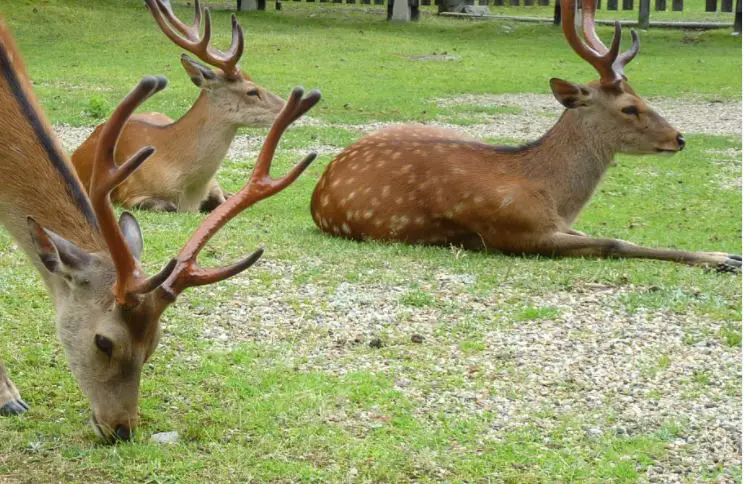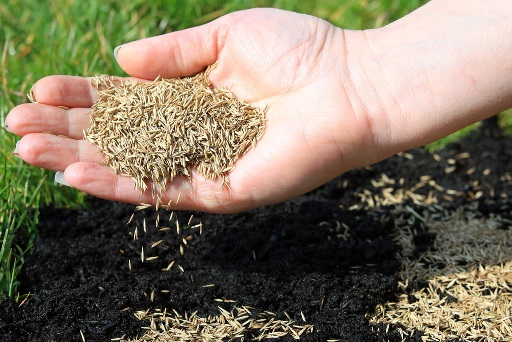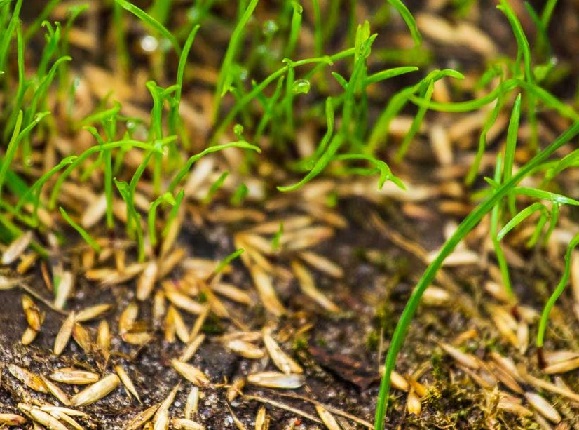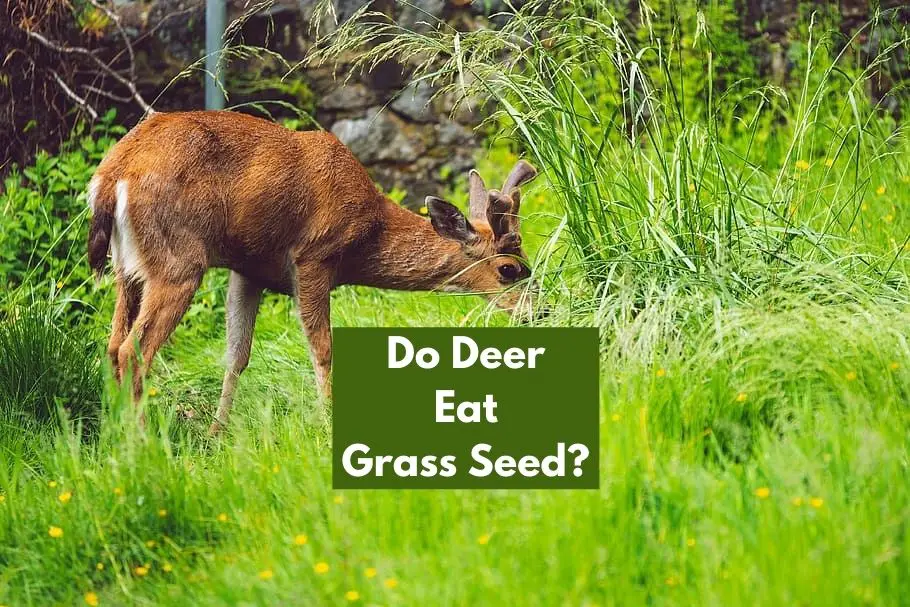There are a lot of myths out there about what deer do and do not eat. One common question is: do deer eat grass seed?
Deer will stay away from grass seed unless they’re starving . Grass seed provides very little nutritional value to deer and is hard for them to digest.
There’s a bit more to learn about deer eating grass seed which we’ll cover in today’s guide. Read on for more info.
Why Don’t Deer Eat Grass Seed?

As we covered, deer will not eat grass seed, even when they’ve got the chance.
The exception is when all other food sources have run out, like in the middle of winter.
However, chances are that grass seed would not be on the bare ground in winter, as that is a terrible time to grow grass!
But why do they avoid it?
After all, deer are herbivores, so they love to eat most parts of leafy greens and flowers, including the stems, leaves, blossoms, and even the seeds.
Grass seed is the seed of a leafy green, so deer should like to eat it, right?
Deer don’t like grass seed because it is tough on their digestive system and has little to no nutrition for them.
White-tailed deer can actually starve by eating only grass seed.
Do Deer Like Grass Seed?
Deer do not like grass seed, as it is hard on their digestive systems and contains very little benefits to them for eating it.
Do not bother planting grass seed if you’re planning a food lot or trying to attract deer to your area, as it will do nothing for you (or them).
Deer are most likely to eat grass seed when all other food resources are gone and they are in full-on survival mode.
How Do I Keep Deer From Eating My Grass Seed?

There are a few things to keep in mind when you’re protecting grass seed from deer: their habits, your scent, repellent options, and when you plant them.
Deer will eat nearly anything if they’re hungry enough, so your main goal is making your garden as least inviting to deer as possible.
Check out our guide on how to keep deer from eating plants where we cover 25 quick and easy tips for keeping hungry deer out of your garden.
Is Grass Seed Good For Deer?

Grass seed is not good for deer because it’s hard for their digestive system to process in order to extract the nutrients that deer need.
It can be a reliable source of protein and fiber when no other food is available.
Grass seed contains minerals like calcium and iron.
These vitamins and minerals provide deer with many benefits.
Deer need calcium for bone, teeth, and antler growth and health as well as other bodily functions like milk production and metabolism.
While all of these nutrients are very valuable to deer, their digestive tracts can’t process grass seed well enough to gain the benefits.
The reason for this is that as the amount of digestible dry matter increases, the more nutrition is passed on to the animal.
Alternatives To Grass Seed For Deer
While many folks think that “everything green” in the forest is acceptable to deer, there are actually not many plants that deer will eat in a given area.
Grass seed matures into grass, which is considered a “forage”, which includes seasonal perennial grasses.
Forages have the lowest digestibility and are much better suited for grazing animals like cows.
Deer prefer to eat weeds or “browse” plants, like the tips of woody shrubs and trees, and occasionally broad-leaved plants.
Deer also love to eat forb plants, which are flowering, nongrassy plants that have seed and stems that die at the end of each growing season, like wildflowers.
Can Deer Eat Grass Seed? Wrapping Things Up
So, do deer eat grass seed?
The answer is no- they will almost never touch grass seed.
Deer will usually not eat grass seed unless there’s no other food sources around.
They can actually benefit from the vitamins and minerals found in it, but their systems have a hard time breaking it down.
Deer are the most likely to eat grass seed in winter when there’s no other food available.
Have any observations to add to the discussion? Be sure to let us know in the comments below.
Check our our other helpful wildlife guides while you’re here:
- Can deer eat orange peels?
- Do deer eat rutabaga?
- Do deer eat buckwheat?
- Do deer eat black walnuts?
- Do deer eat hickory nuts?
- Do deer eat Bermuda grass?
- Do deer eat corn on the cob?
- Do deer eat pumpkins?
- Do deer eat mums?
- Do deer eat roses?
- Do deer eat tomatoes?
- Do deer eat sunflowers?
- Do deer eat tulips?
- Do deer eat rhododendron?
- Do deer eat hibiscus?
- Will deer eat clematis?
- Do deer eat phlox?
- Do deer eat white pine?
- Do deer eat chufa?
- Do deer eat cranberries?
- Do deer eat English ivy?


